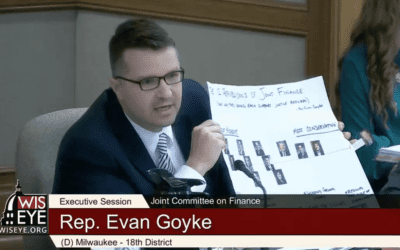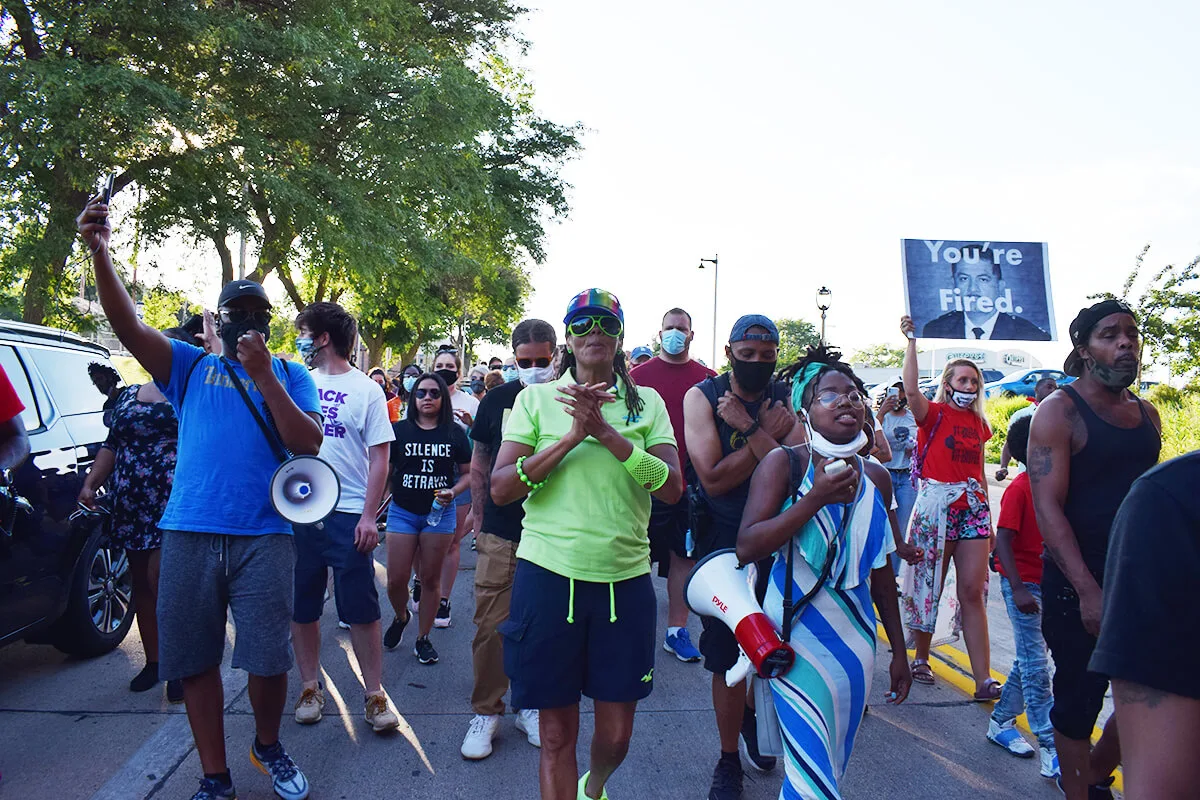
#image_title
Activist says demonstrations will lead to systemic change: “This isn’t a negotiation.”
It started with a few hundred people marching on May 29, four days after Minneapolis police killed George Floyd.
The Milwaukee Black Lives Matter movement swelled in the following days. Nine days in, players from the Milwaukee Bucks would join marchers. Forty-one days later, demonstrators would mark 50 consecutive days of marching in the Milwaukee area and label themselves “The People’s Revolution.”
And now, another 50-some days later, The People’s Revolution is still going strong, with the daily demonstrations against police brutality and systemic racism surpassing 100 days last Saturday. The movement has dwindled from thousands to a dedicated group of a few dozen, but activists have found a renewed purpose with the 100-day milestone and subsequent release of a list of 11 official demands.
“If and when we get to 200 days, it’s not like we get to 200 days and we’re done,” said Khalil Coleman, a Milwaukee activist and leader of The People’s Revolution.
Coleman said he and his fellow marchers in the Revolution plan to march until their demands are met. Among the demands: banning chokeholds and no-knock warrants, renegotiating police union contracts that shield officers from repercussions over misconduct, and increasing the minimum education for new police officers from a high school diploma or GED to a four-year degree.
“When you start looking at our demands, a lot of this stuff is state legislation that’s not [signed] into law,” Coleman said. “It’s going to take these elected officials, these state legislators, to go back into the chambers and actually put these things on pen and paper.”
State Democrats introduced a nine-bill package of police reform initiatives in June following Floyd’s death, and Gov. Tony Evers again pushed the proposals after a Kenosha police officer shot Jacob Blake, a Black man, seven times in the back at point-blank range on Aug. 23. Two of those bills would ban no-knock warrants and chokeholds—two practices that have led to the killings of Breonna Taylor and Eric Garner, both unarmed Black people, by police—and another would require officers to undergo eight hours of de-escalation and use-of-force training each year.
Evers called a special session on those bills after the Blake shooting, but legislative Republicans didn’t even show up in Madison to discuss the bills.
Assembly Speaker Robin Vos (R-Rochester) instead formed a task force on race, which he handed off to Assembly Majority Leader Jim Steineke (R-Kaukauna), who is white, and Rep. Shelia Stubbs (D-Madison), who is Black. Steineke said he wants the task force to formally introduce a bipartisan reform package in January, about eight months after nationwide protests over Floyd’s death first began.
One the people asked to be on that task force is Tory Lowe, an activist who works as an advocate for families whose loved ones have suffered from police brutality. Lowe is not directly involved with The People’s Revolution but has attended some marches, such as a July protest in which demonstrators called for Milwaukee’s former police chief to be fired over his refusal to fire an officer charged with murdering a man in April.
“Wisconsin has become one of the ground focal points of civil rights in America, and the state of Wisconsin is considered one of the worst places for African Americans to live,” Lowe said. “Milwaukee is probably one of the worst places to raise a Black child.”
By just about any metric, Wisconsin, and the Milwaukee metropolitan area in particular, is one of the worst places—if not the worst—for Black people in America, numerous studies have found. That is due to the lasting effects of redlining, deindustrialization, and over-policing that have left Black Wisconsinites with little investment in their neighborhoods other than increased law enforcement presence, and little room for mobility.
Last month, Lowe joined a group of about 20 protesters who marched more than 750 miles from northern Racine County all the way to Washington D.C. in 25 days. By the time the group arrived in D.C. for the “Get Your Knee Off Our Necks” march, its numbers had grown to about 70 as people joined them on the road. There they met with other activists and victims of police violence from around the country, including the family of Jacob Blake.
Lowe estimated that Wisconsin had the most representation of any state at the rally.
“That’s good for the activists as far as getting heard,” Lowe said. “But it’s actually tragic at the same time due to what is actually going on in the state of Wisconsin.”
The Milwaukee activist who organized the 750-mile trek, Frank “Nitty” Sensabaugh, gave a rousing speech at the Washington march. His journey and speech netted him an interview on MSNBC, and he also recently appeared on Showtime’s show “The Circus,” which is documenting the 2020 presidential campaign. He now has over 110,000 followers between two Facebook pages.
Sensabaugh and Coleman initially got The People’s Revolution off the ground, but Sensabaugh is now turning his attention to national organizing.
Sensabaugh said his cross-country march helped him see that activists across the country need to unite to enact change in rural areas as well as urban cores. On the trip, the group was harassed, called racial slurs, arrested, and even shot at as they passed through rural Indiana and Pennsylvania.
“It was like going through a time machine, going back to like the ‘60s and ‘50s,” Sensabaugh said. “No one in Milwaukee is going to walk up to you and call you a [N-word]. But in a lot of the cities and towns we went through, you could definitely walk up to Black people and call them a [N-word], and it definitely was normal. It wasn’t something that was a secret; it was something that happened every five minutes or so.”
Moving forward, Sensabaugh, a victim of police brutality himself, said he plans to travel the country to build an activist network. It’s not a matter of if, but when, marchers see justice, he said.
“They don’t have a choice,” he said. “We’re not asking for change. We’re demanding it. This isn’t a negotiation.”
Sensabaugh said he sees progress even in Wisconsin Republicans, despite their inaction on the Democratic bill package. He said Vos’ task force shows that demonstrations have moved the needle because “these are issues the Republican party, and even certain individuals, never had discussion about, even 10 years ago.”
But Coleman isn’t holding his breath for substantial government action. Until change comes, he said, the people will keep marching for justice.
“Hell yeah, it’s gonna come from the people,” Coleman said.
Update: This story has been updated to reflect that Frank “Nitty” Sensabaugh organized the march from Wisconsin to Washington, D.C.
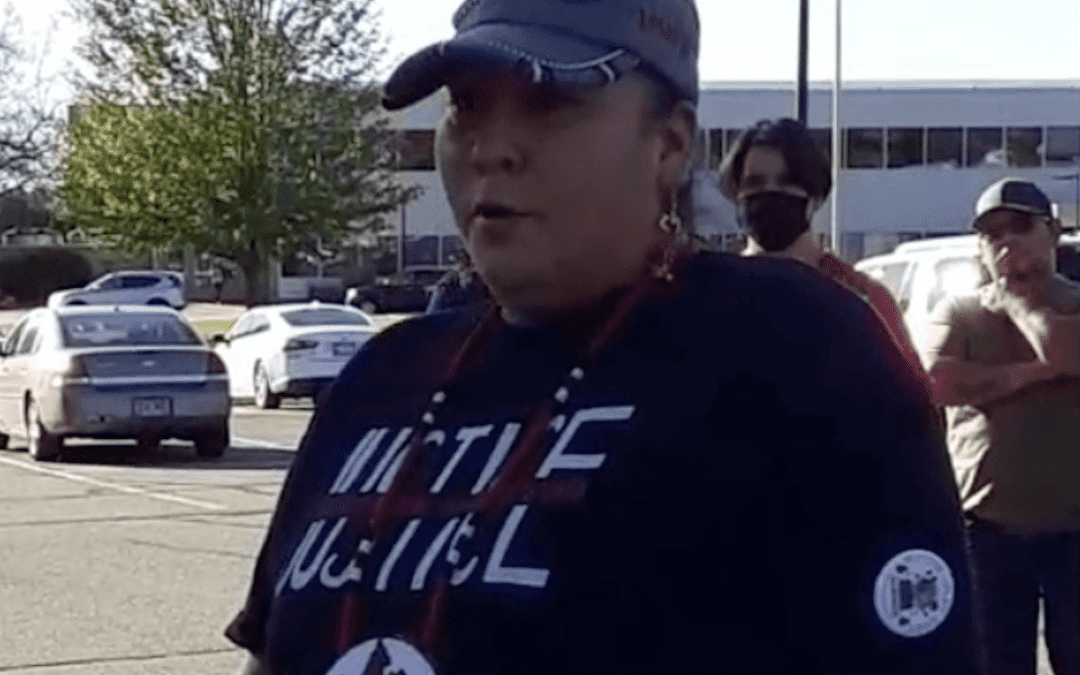
Native American Leaders Seeking Improvements to Curriculum After Teacher Wears Racist Outfit
Insensitive depictions of Native Americans are demeaning and further negative views that help lead to violence against indigenous people, advocates...
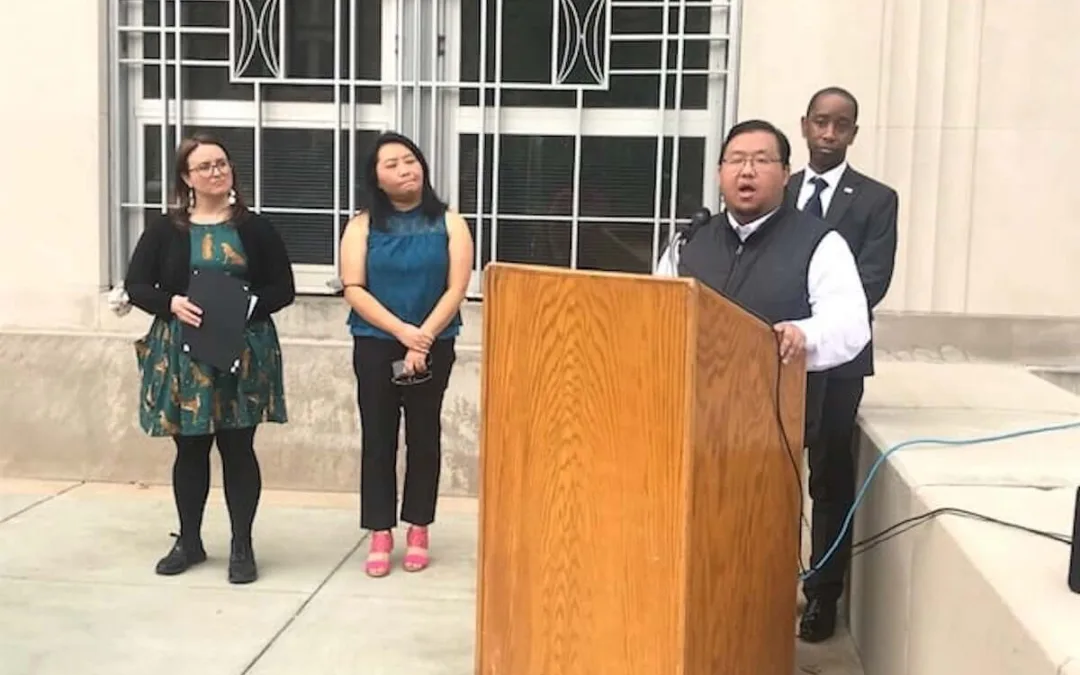
After ‘Community for All’ Resolution Fails Again, Progressive Marathon County Officials Worry ‘This Might Set Us Back’
“This sends the message that some people don’t matter as much as others in our community,” one official said. Supporters of a controversial...
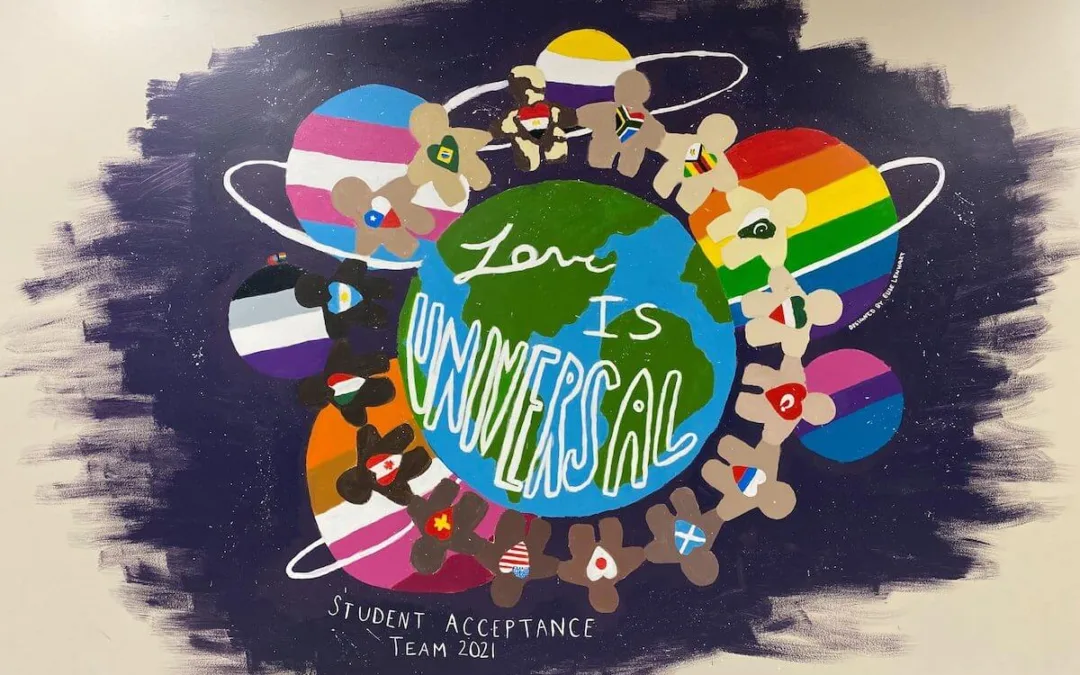
Commentary: Cedarburg’s School Mural Fiasco Shows Why We Need to Get Out of Our Bubbles
The district said the mural didn't represent "all members of our school community." But who was really left out? Earlier this month, the Cedarburg...

‘More Work Left’: First Police Reform Bills Pass, but Some Push for More
Evers says he’ll sign the bills, but he, legislative Democrats, and organizers say the state needs deeper reforms. Wisconsin will soon have a...



